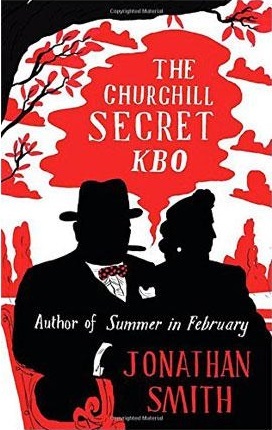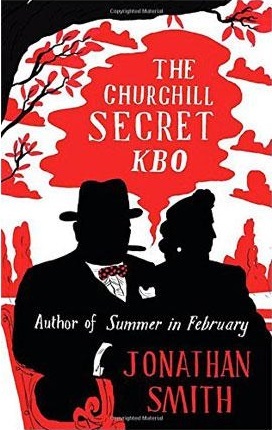
Finest Hour 168
Books, Arts & Curiosities – The Churchill Secret KBO

September 9, 2015
Finest Hour 168, Spring 2015
Page 48
Jonathan Smith, The Churchill Secret KBO. Little Brown, 208 pages
Review by Robert Courts
 This novel tells the story of the little-known crisis that started in June 1953, when the seventy-eight-year-old Prime Minister, Sir Winston Churchill, suffered a major stroke while entertaining an Italian delegation at Downing Street. Anthony Eden, the heir presumptive, was at the time undergoing major surgery in the United States, leaving the United Kingdom effectively rudderless.
This novel tells the story of the little-known crisis that started in June 1953, when the seventy-eight-year-old Prime Minister, Sir Winston Churchill, suffered a major stroke while entertaining an Italian delegation at Downing Street. Anthony Eden, the heir presumptive, was at the time undergoing major surgery in the United States, leaving the United Kingdom effectively rudderless.

2024 International Churchill Conference
That Churchill not only managed to recover from this stroke but also to return to front-line politics by making his speech at the Conservative party conference in November of the same year— almost without anyone realising anything was amiss—is indeed remarkable.
Jonathan Smith dramatises and explains this story, starting with the fateful dinner, where immediately we meet the core cast: Jock Colville, Lord Moran, and, of course, Clementine. We see this unlikely group work together to spirit the stricken Prime Minister away to Chartwell and effectively conspire to keep the nation ignorant of the news.
Smith is most successful at bringing alive the main characters: personal physician Lord Moran’s prickly defensiveness, and Clementine’s belief in her titanic husband mixed with nervous concern for his welfare. Above all is a lively illustration of what Churchill must have been like at this point in his life: aged, infirm, infuriating, and magnetic, while vulnerable and defiant at the same time.
Where Smith scores less highly is in dramatic narrative. The true drama of the story lies not really with Churchill himself, but with those who conspired to keep his illness secret. Yet, Smith mentions only briefly the crucial meeting at Chartwell between Colville, the faithful Private Secretary, and the three newspaper barons: Beaverbrook, Bracken, and Camrose.
Naturally, Smith focuses on Churchill himself. But the problem with building a novel around the recovery of an aged stroke-patient is that it is—of necessity—a slow read. Smith’s solution is to introduce a fictional character, Nurse Appleyard, who assists Churchill with his recovery while forming a friendship. This enables Smith to have Churchill conversing with a person rather than engaging in an internal stream-of-consciousness. However, there are long passages of Churchillian wandering in which the patient recites tracks from the “greatest hits” of his phraseology; these do not always ring true.
This is an enjoyable novel, even if it does not quite catch fire. It commits no major factual errors, perpetuates no myths, and brings its hero’s extraordinary story to a new audience in a pleasant and readable way. It is a welcome addition to the canon.
Robert Courts is a barrister and committee member of The Churchill Centre UK.
Subscribe
WANT MORE?
Get the Churchill Bulletin delivered to your inbox once a month.


